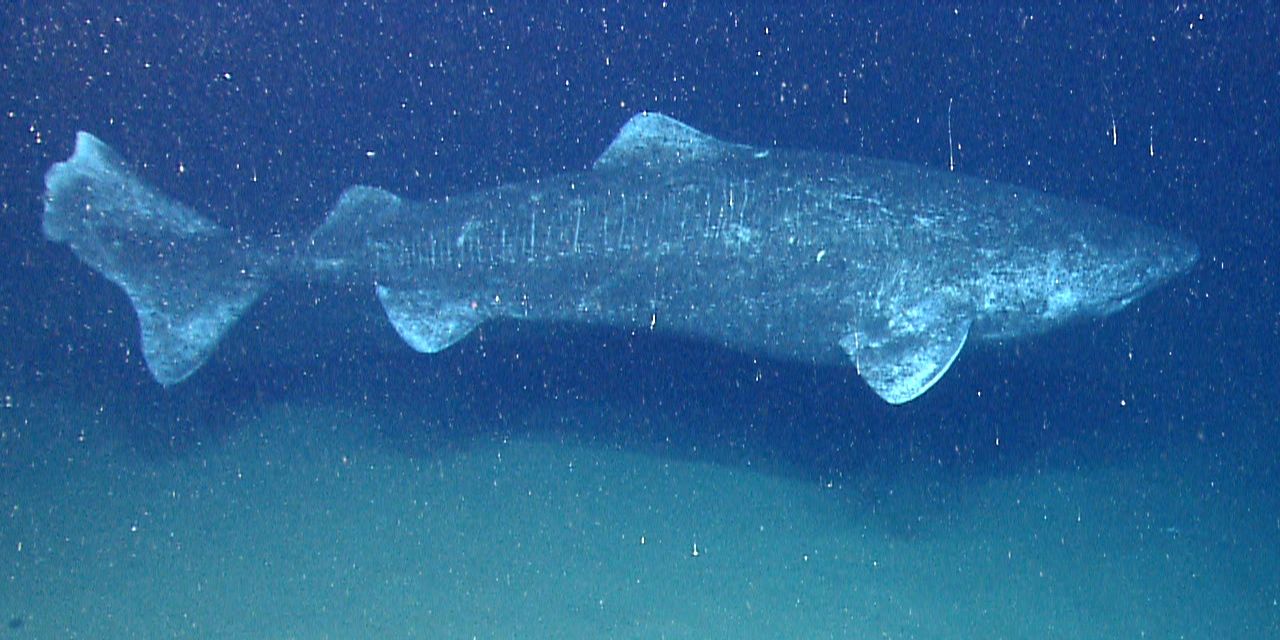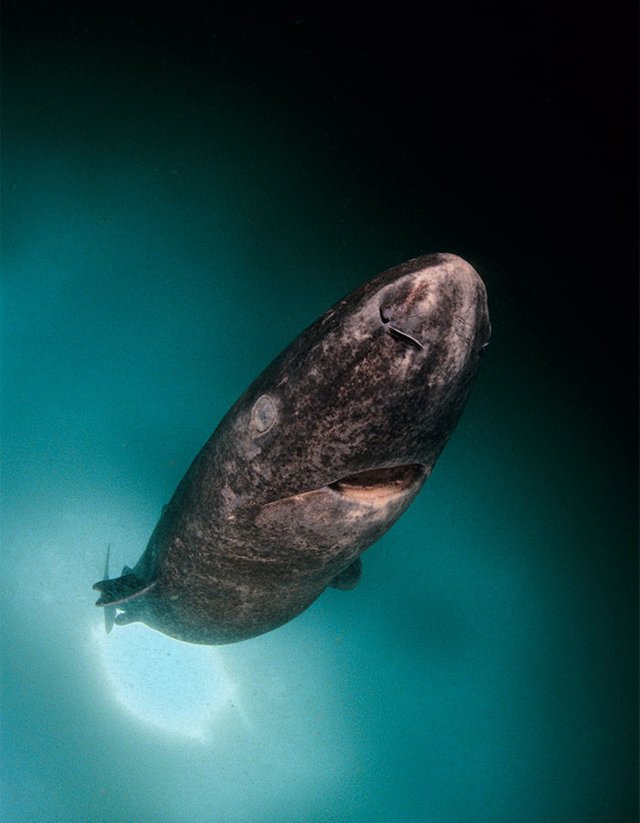Jumping on the Shark Week Bandwagon: The Greenland Shark

The Greenland Shark, also called the eqalussuaq by the Inuit, is one of the coolest species of sharks on the planet. It's one of the larger species of sharks, growing up to 24 feet long and topping a ton in weight. (Most, of course, are considerably smaller- about half that size.) It's also one of the more poorly understood shark species out there, since it spends so much of its time under the ice.
There are so many weird things about this shark to talk about. First off, the big one that everyone likes to talk about: its lifespan. The Greenland Shark can live 300-500 years. It is the single longest living vertebrate known. They don't even reach sexual maturity until they're 150! They're also apparently immune to most disease- including cancer. (They are, however, vulnerable to various parasites, including copepods- 90% of Greenland sharks have copepod eye parasites.)
They're also the single slowest moving shark- or fish- of their size. They top out at a leisurely 1.6 mph! This is, to great extent, because they are a cold-blooded organism living in freezing or even below freezing water. (Salt lowers the freezing temperature of water, so ocean water can sometimes drop below 0 Celsius. This is also why salt melts ice.) Their enormous hearts only beat once every twelve seconds, pushing huge amounts of blood through their body in one go. Biologists think that their extremely slow-moving metabolism is likely the main reason for their longevity- but not the only one. They're a major target of longevity research in order to try and increase our own lifespans.
Their flesh is quite toxic- it probably won't kill you, but it will make you sick and induce a state similar to drunkenness. It also contains high levels of urea- the primary substance found in mammal urine. It can be treated to remove the toxin (not sure about the urea), however, and Icelanders make a delicacy called hakarl by removing the toxin and then fermenting the meat over several months. Hakarl is often described by non-Icelanders as the worst tasting thing on the planet.

Greenland sharks give live birth- they hold the eggs inside them until they hatch.
They can be found as far down as a mile and a half in depth!
As cool as these sharks are, though, they're in quite a bit of danger. Their long lifespans and late maturation mean that their reproduction rate is particularly low. While the hakarl industry isn't a huge danger, being fairly small, there are other serious threats to their existence. During the first half of the twentieth century, they were actively hunted for the layer of oil around their livers, which was used to lubricate machines- especially during the world wars. Their populations still haven't recovered from that. These days, increased fishing in the Arctic is resulting in many of them being killed as bycatch- fish incidentally caught while going after something else. If you'd like to do something to help preserve this fascinating species, the best thing you can do is choosing your seafood sustainably- some fish are much better choices for the environment than others. In addition, there are many worthy conservation groups out there working to protect our oceans you can donate to or volunteer for.
I didn't take these photos- rights belong with the Wikimedia Foundation and The Discovery Channel, respectively.
Thanks for the interesting post. I think its important to be educated about our envoriment and try ones best to protect it.
Id like to nominate the post in a curation group Im in.
This gem of a post was discovered by the OCD Team!
Reply to this comment if you accept, and are willing to let us share your gem of a post! By accepting this, you have a chance to receive extra rewards and one of your photos in this article may be used in our compilation post!
You can follow @ocd – learn more about the project and see other Gems! We strive for transparency.
Yeah, go for it!